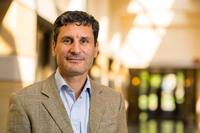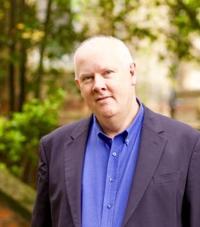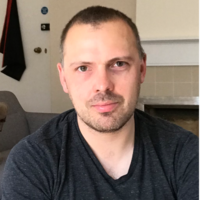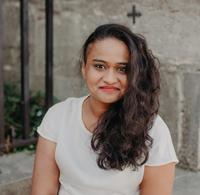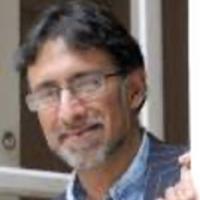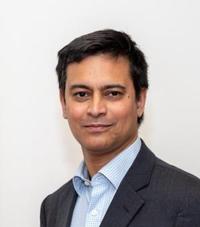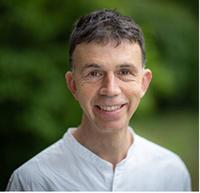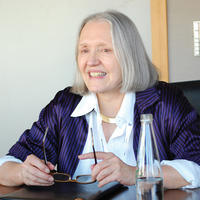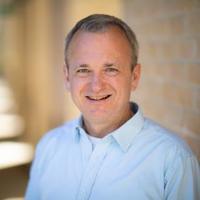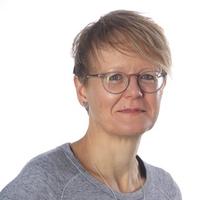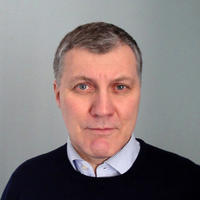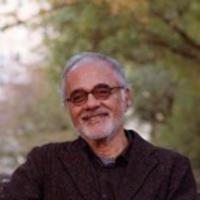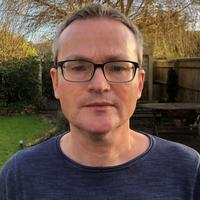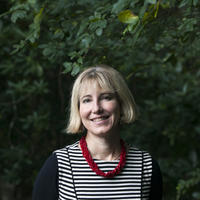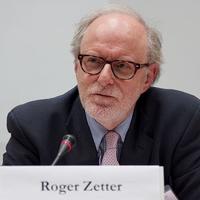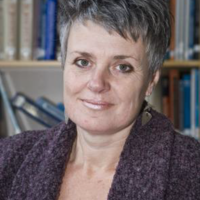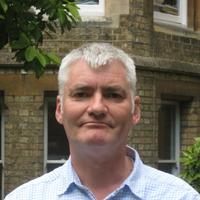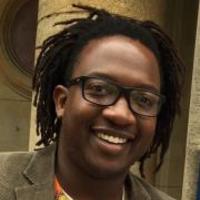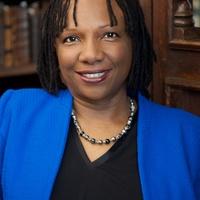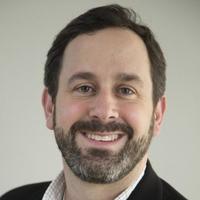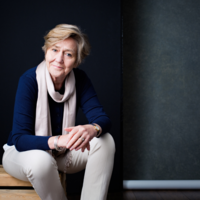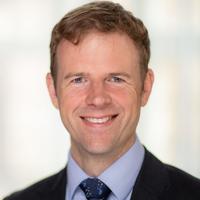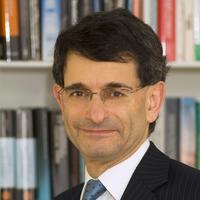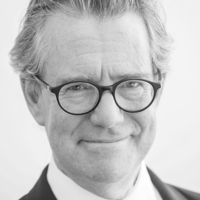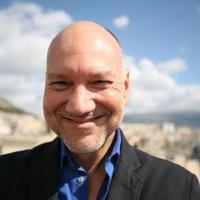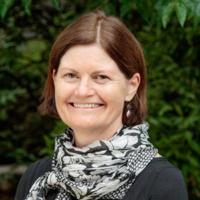Speakers
Prof Heather Hamill
Associate Professor in Sociology, Dean of St Cross College

Heather's research primarily centres on the various ways in which problems related to establishing trust and reputation are solved. These issues are particularly pertinent in the low trust environments of high crime neighbourhoods and illegal political and criminal organisations. She has researched these issues in a number of different settings including: informal justice and policing in Northern Ireland; how taxi drivers establish the trustworthiness of their customers and how illegal political and criminal organisations recruit their members. Her current research focuses on the problems of trust created by the proliferation of sub-standard and falsified (SF) medicines sub-Saharan Africa.
Heather was formerly a British Academy Postdoctoral Research Fellow and has been awarded research grants from the Russell Sage Foundation, the Economic Social and Research Council (ESRC), the Nuffield Foundation and the Wellcome Trust. Her books include Streetwise: How taxi drivers establish their customer's trustworthiness (Russell Sage Foundation 2005, with Diego Gambetta) and The Hoods: Crime and Punishment in Belfast (Princeton University Press, 2011).
Research Areas: Extra-Legal Governance and Crime.
Prof Leigh Payne
Professor of Sociology and Latin America
Leigh A. Payne is Professor of Sociology and Latin America at St Antony's College, University of Oxford. She works primarily in the area of human rights and transitional justice, or the mechanisms used by countries that have emerged from authoritarian rule and armed to conflict to address the violent past. She has built a number of original databases, most recently Corporate Accountability and Transitional Justice (CATJ) and has published findings in a Cambridge University Press book (2020), the Annual Review of Law and Social Sciences, and several book chapters. She will discuss in this session on mixed methods the creation of her first Transitional Justice Database (TJDB) and the book that emerged from that project: Transitional Justice in Balance. She is currently developing two new projects. One on confessions by members of armed revolutionary movements and the second on contemporary mobilizations on the right-wing. She has already begun to publish articles from those projects. For her academic research and policy impact work, Payne has received grants and funding from foundations (Open Society, Ford, Oak, Newton, and Zennström) and research councils (ESRC, AHRC, British Academy, NSF). Professor Payne received her PhD from Yale University.
Dr Olivier Sterck
Lead economist of the Refugee Economies Programme (REP) at the Refugee Studies Centre (RSC)
Olivier Sterck is the lead economist of the Refugee Economies Programme (REP) at the Refugee Studies Centre (RSC). Before joining the RSC, Olivier was postdoctoral research fellow at the Centre for the Study of African Economies (CSAE) at the University of Oxford. His research is multidisciplinary in scope, building bridges between development economics, health economics, and refugee studies. Olivier's research uses applied econometrics and economic modelling to study refugee economies. With colleagues from the REP, he has been collecting and analysing data on more than 15,000 refugees and members of host populations in Kenya, Uganda, and Ethiopia. In partnership with the World Food Programme, Olivier has been analysing the impact of various cash transfer models on the socio-economic outcomes of refugee households and refugee businesses in the Kakuma refugee camp and the Kalobeyei settlement.
For a complete list of publications, see his personal website.
Speakers
Dr Martha Newson
Anthropologist

Dr Martha Newson’s research centres on group bonding, ritual, and community. The populations and methodologies she works with are diverse: from taking saliva samples from football fans at live World Cup matches in Brazil to investigate stress; to interviewing rave participants in warehouses across London; to running surveys with fundamentalist Muslims and hardcore football fans in Indonesia and Australia.
While some self-sacrificial acts are beneficial to society, e.g. charitable donations or giving blood, others have distinctly hostile implications, e.g. sectarian or gang violence. Martha is developing intervention strategies that use football and other group rituals, such as rave culture, as platforms to (a) increase social cohesion, (b) reduce crime, and (c) reduce r prison and probation reoffending rates.
Academically, she is based at the Universities of Kent and Oxford. She currently leads research on how major football clubs can help tackle reoffending in partnership with the Twinning Project, Her Majesty’s Prison & Probation Service, and the Ministry of Justice.
Martha has contributed to Discovery’s Why We Hate, produced by Steven Spielberg, as well as numerous BBC and Sky TV features in the UK.
Twitter: @martha_newson
Prof Andrea Ruggeri
Professor of Political Science and International Relations and Director of the Centre for International Studies
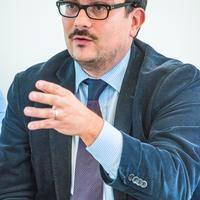
Andrea Ruggeri is Professor of Political Science and International Relations and Director of the Centre for International Studies at the University of Oxford. He joined Brasenose College and the Department of Politics and International Relations in 2014. Previously, he was Assistant Professor of International Relations at the University of Amsterdam from 2010. He holds a PhD in Government (Essex, 2011), an MA International Relations (Essex, 2006) and a BA in Diplomatic and International Sciences (Genova, 2005). He has been visiting professor at the University of Genova, Bocconi University, University of Milano Statale.
His work focuses on civil wars, political violence and peace operations. His research has been published in the British Journal of Political Science, Comparative Political Studies, International Security, International Organization, Journal of Conflict Resolution, Journal of Peace Research, Political Geography, Political Science Research & Methods, World Politics and edited volumes.
He has a co-authored monograph with Vincenzo Bove and Chiara Ruffa entitled “Composing Peace. Mission Composition in UN Peacekeeping” (2020, OUP). He is working with Stefano Costalli on a book manuscript entitled “Logics of Armed Mobilization”. He is in the editorial board of Journal of Peace Research, International Peacekeeping, Quaderni di Scienza Politica.
Twitter: @aruggeri_eu
Prof Federico Varese
Professor of Criminology
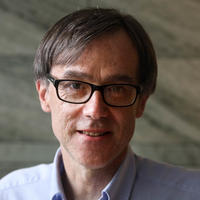
Federico Varese a Professor of Criminology at the University of Oxford and a Senior Research Fellow at Nuffield College, Oxford. In October 2021 he became the Head of the Department of Sociology at Oxford University. His research interest include organised crime, corruption, Soviet criminal history, social network analysis and analytical social theory. He is the author of two award-winning monographs - The Russian Mafia (OUP, 2001) and Mafias on the Move (Princeton UP 2011) and an edited collected, Organized Crime (2010). His third book, Mafia life (2018) has been translated into eight languages and has been optioned for TV. He has published extensively in academic journals. He contributes to The Times Literary Supplement and, in Italy, the daily La Repubblica. His work has been featured in The Economist, The BBC News & World Service, ABC, The Guardian, The New York Times, The Monkeycage Blog and Freakonomics blog, among others. Varese was awarded an advanced grant from the European Research Council worth 3m euros for a project on the governance dimension of organized crime.
Twitter: @federico_varese
Speakers
Prof Rosella Ciccia
Associate Professor of Social Policy
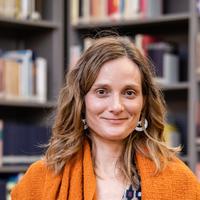
Rossella Ciccia is Associate Professor of Social Policy in in the Department of Social Policy and Intervention and a Fellow of Green Templeton College. Her research interests lie in field of comparative social policy with a particular focus on issues relating to social inequalities, gender, care and paid work. She is a member of the international research network Gender Equality Policy in Practice (GEPP) and of the scientific board of the International Observatory on Social Cohesion and Inclusion.
Her work has appeared notably in the Journal of European Social Policy, Social Politics, Policy & Society, Quality and Quantity, European Journal of Politics and Gender, Gender and Politics, Journal of Comparative Policy Analysis, Social Policy & Administration, Revista Espanola de Sociologia. She has been the PI of the Marie Curie Project AGenDA investigating the role of social inequalities and welfare coalitions in the reform of Long-Term Care policies in Italy and Spain (2018-2020).
Her research was awarded the nominee honor for the Rosabeth Moss Kanter Award for Excellence in Work/Family Research in 2015. In February 2020, she received the inaugural Emma Goldman award in recognition of the substantial contributions of her research to knowledge on feminist and inequality issues in Europe.
Prior to joining the University of Oxford, she has held positions at Queen’s University Belfast, Scuola Normale Superiore, Maynooth University and Radboud University Nijmegen and several other European universities.
Prof Nicholas Owen
Joint Head of Department, Associate Professor of Politics, Praelector in Politics, The Queen's College
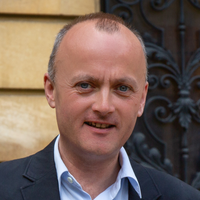
I am joint Head of Department (with Petra Schleiter). We divide up the work as follows. Petra Schleiter leads on research, finance, the REF, recognition of distinction and the award of titles. I lead on teaching and courses, non-academic HR, communications, development, building matters, and health and safety. I also represent the Department on the Divisional Board. We divide up the work in academic recruitment and staff review and development, as well strategic planning, governance, risk management and equality and diversity.
In normal times, I'm an Associate Professor in Politics (CUF) and Fellow and Praelector in Politics at The Queen's College. For the Department, I provide undergraduate lectures and classes, mostly in British political history and modern British politics and government, and supervise graduate students in the fields of modern British politics and government, political history and the politics and history of modern social movements. At Queen’s, I am Praelector (Tutor) in Politics, which means organising the teaching of Politics for the undergraduates studying Philosophy, Politics and Economics, and History and Politics. I provide tutorials for students at Queen’s College (and at other colleges too) who are studying the core and optional papers on British government and politics. I also supervise undergraduates writing theses in these areas.
My research website.
Prof Nikita Sud
Associate Professor of Development Studies
Dr Nikita Sud is Associate Professor of Development Studies at the Oxford Department of International Development. She is Vicegerent of Wolfson College. Her teaching and research is centered on the politics of development, the neoliberal transformation of states and governance, and the politics, sociology and ecology of South and South East Asia, especially India. She is author of the books 'The Making of Land and The Making of India', and 'Liberalisation, Hindu Nationalism and The State: A Biography of Gujarat', both published by Oxford University Press.
Speakers
Jacqui Broadhead
Director, Global Exchange on Migration and Diversity, COMPAS
Dr Michelle Meadows
Associate Professor in Educational Assessment

Michelle Meadows has recently joined the university as an Associate Professor in Educational Assessment in the Department of Education. She conducts research evaluating the validity of qualifications, including research into the maintenance of standards over time, moderation, marking, malpractice and assessment design. Prior to joining the university, she was Deputy Chief Regulator and Executive Director of Strategy, Risk and Research at Ofqual where she conducted research to inform England’s educational assessment policy. She has spent her career working at the intersection between research, policy and practice. Prior to working at Ofqual she was Director of AQA’s Centre for Education Research and Policy.
Dr Thomas Hale
Associate Professor in Public Policy

Dr Thomas Hale’s research explores how we can manage transnational problems effectively and fairly. He seeks to explain how political institutions evolve – or not – to face the challenges raised by globalisation and interdependence, with a particular emphasis on environmental, economic and health issues. He holds a PhD in Politics from Princeton University, a master's degree in Global Politics from the London School of Economics, and an AB in public policy from Princeton’s Woodrow Wilson School. A US national, Dr Hale has studied and worked in Argentina, China and Europe. His books include Beyond Gridlock (Polity 2017), Between Interests and Law: The Politics of Transnational Commercial Disputes (Cambridge 2015), Transnational Climate Change Governance (Cambridge 2014), and Gridlock: Why Global Cooperation Is Failing when We Need It Most (Polity 2013). Dr Hale leads the Oxford COVID-19 Government Response Tracker.



